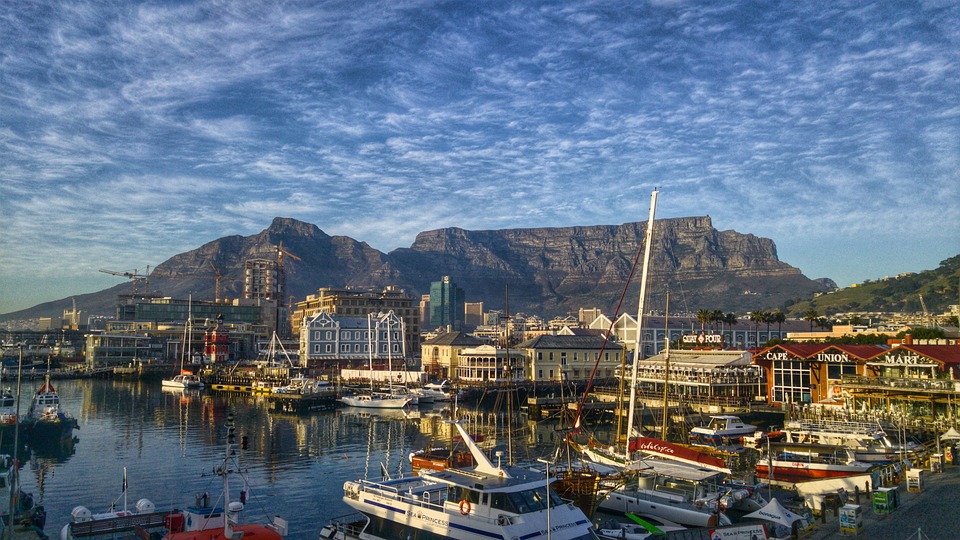South African investors are setting their sights outwards due to apprehension and lack of confidence in the local economy. Most notably, the South African economy is struggling to stabilise itself, shrinking by 2.2% in the first quarter of 2018, following a 1.3% GDP growth in 2018. Widespread political uncertainty is furthermore aggravated with the problem of corruption in all sectors of society. Adding this to South Africa’s vastly volatile currency, investors face sizeable risk when investing within the country. This stands in contrast to rewards to be gained when diverting South African investment towards Europe. The continent presents a lucrative option with numerous countries to choose from offering attractive returns on investment, stable economies and political systems, and comfortable standards of living.
The EU and South Africa have a strong bilateral economic and cultural relationship which has been cemented through a long history of cooperation. The EU is in fact the biggest source of foreign direct investment in South Africa, while the latter is also the economic bloc’s largest trading partner in Africa. South African exports to the EU have been growing over the years and becoming more diverse, ranging from fuels and mining products, to machinery and transport equipment, and other semi-manufactured goods. On the other hand, South African imports from the EU include mainly machinery and transport equipment, chemicals and other semi-machinery. This is reflective of South Africa’s gradual shift from a heavily commodity-based industry to manufacturing.
In the strategic partnership that exists between the two, South Africa has been investing its fair share in the EU, mainly in the areas of manufacturing and property. While investing in the EU is auspicious to the South African economy in itself, there are particular push factors which prompts South African investment in the European market.

South African investment in the European property market
While the South African property market is robust, there is also a voracious drive for property investments within Europe, for an array of reasons. Firstly, there is a general oversupply of property relative to local demand in South Africa. Furthermore, though household rates in the country appear to be looking up in 2018, in real terms rates in the local residential market have dropped significantly over the last ten years. Annual house price growth registered at only 4.8% in 2016, and 3.7% in 2017. While the country’s economy has emerged from the recession, the kernels of growth it might be seeing in other sectors have yet to seep into the local property market.
According to IP Global’s Global Real Estate Report, European cities top the list for the most popular international real estate locations for South African investment. London, in particular, holds a particular draw due to its economic stability and robust rates-on-return. Vienna is also one of the cities with an increasing interest when it comes to South African investment- the city has seen a 10.5% average property price increase per year over the past five years. Central and Eastern Europe has also been popular among South African property investors, largely because of the high yields and low interest rates the region offers. As regards to investment type, buy-to-let international residential properties are the more common purchase among South Africans, mainly for diversification and capital protection motives, as well as being income-producing assets due to their tangibility. The South African listed-property sector today nearly has half of its value in overseas markets, with offshore exposure for property stocks having more or less doubled since 2014.
South African investment in European residency and citizenship
While countries like the UK are more conventional among South African investors when it comes to business preferences, their citizenship attainment prospects are relatively limited. South African HNWIs have therefore developed an acute appreciation for the merits of residency and citizenship by investment programmes. While some of them invest in these programmes for purely relocation reasons, other South African investors look into them as a way to broaden their options or secure a backup plan in their personal/business life.
The main attractions of such programmes among South Africans are the vast visa-free mobility they offer, the favourable business prospects, and the advanced standard of living. Among the investment migration programmes that have been high in demand amongst South African HNWI, there are the Golden Visas for Portugal and Spain, and the citizenship by investment programmes offered by Malta and Cyprus which open up a more direct route to citizenship.
The Portugal Golden Visa, for instance, has issued 254 approvals to South African HNWIs since its inception in November 2012. The market now represents 4% of all successful applicants for the programme. Apart from having minimal stay requirements, qualifying property investments range from €280,000 to €500,000, making the programme a flexible and attractive option for investors.
Malta is another sought-after option, offering its own variety or residency and citizenship programmes. The Malta Citizenship Programme not only grants investors visa-free access to 182 different countries, but, similar to the Cyprus citizenship programme, following the granting of citizenship, it also gives applicants the right to live, work, study, and do business in any of the EU member states. This makes the Malta Citizenship Programme the ultimate gateway to the EU. To add to this, the Maltese economy has been enjoying constant economic growth, and witnessing great strides in sectors including financial services, information technology, advanced manufacturing, and real estate.
The Maltese property market is undoubtedly a profitable one- different property sectors have been undergoing sustained price increments, amidst the unwavering demand of both locals and foreigners. The buy-to-let market has also been expanding, offering the potential of a steady stream of income and stable appreciations in property prices in the long-term. The thriving real estate market makes Malta an excellent candidate for South African investment, in particular South African HNWIs looking into offshore property investment, especially when considering their keen interest in the buy-to-let market.